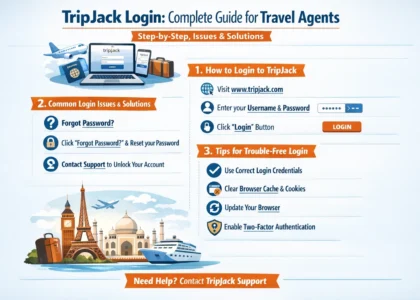How Do Loyalty Programs Work?
Tracking a player’s activity allows loyalty programs to honor consistent play. Depending on the amount paid, frequency of visits, or involvement in special promotions, points or credits are gathered. After that, these points are worth free play, dining discounts, hotel stays, and special events. Though the organization of these events differs from one venue to another, the overall idea stays the same: rewarding loyalty to inspire ongoing involvement.
Many times, loyalty programs are tiered—that is, a player’s level inside the program rises with increasing expenditure. Enhanced benefits include personalized attention, faster point accumulation, and access to VIP privileges typically accompany higher tiers. Nevertheless, the structure of the program and the rapport between the different casinos will determine if these benefits can be employed or transferred around several casinos.
Programming Multi-Property Loyalty And Casino Ownership
Owner is one of the main factors deciding whether a loyalty program can be applied among several casinos. To run multi-property loyalty programs, big gaming companies can control several properties under a single brand or family of brands. Under such circumstances, points gained at one site can usually be used at another inside the same network.
For instance, businesses like MGM Resorts and Caesars Entertainment run several locations all throughout different areas. Through its loyalty programs— MGM Rewards and Caesars Rewards—players can accrue points from any one partner site and apply them across several sites. Players may earn awards in one city and redeem them in another, therefore improving flexibility and convenience by this integration.
Conversely, independently run businesses could have unique loyalty programs that are not applicable elsewhere. In some situations, points gained at one location can only be redeemed at that particular property, therefore restricting the options for prizes. Some smaller businesses, meanwhile, might cooperate to provide shared loyalty incentives by means of alliances or partnerships.
Regional And National Loyalty Programs
Certain loyalty programs operate nationally or regionally and go beyond individual casino operators. High concentrations of gaming facilities, like Las Vegas or Atlantic City, often reflect these initiatives. Under these circumstances, several casinos might join a common rewards program so that players may accrue and use points on several facilities.
Certain regional casino networks, for instance, design cooperative loyalty programs whereby resources are pooled to draw a larger clientele. These initiatives help king999 gamers by providing more redemption choices and by motivating visits throughout several sites. Though unusual, national loyalty programs do exist, particularly for franchises operating across several states or countries.
Interventions Between Various Companies
Although individual loyalty programs usually only cover particular operators, alliances between several brands can help to obtain the benefits. To provide its members further advantages, several gaming organizations form deals with hotels, restaurants, entertainment venues, even airlines. This increases the whole worth of the program by letting gamers utilize their acquired points for services outside of gaming.
Certain schemes, for example, let members translate their points into hotel stays, airline miles, or retail discounts. This kind of cross-brand integration offers more adaptability, which appeals to a greater spectrum of consumers about loyalty programs. Players that visit several casinos under different ownership structures may also still find ways to maximize their benefits by means of strategic alliances.
Global Considerations
Players that travel abroad give much thought to their capacity to use loyalty points across many nations. Certain worldwide gaming companies run facilities in several countries so that members may accumulate and redeem points anywhere. Different rules, taxes, and market conditions could, however, influence how these initiatives operate in different countries.
For instance, a loyalty program that runs perfectly in the United States can have restrictions when implemented in Europe or Asia depending on different gaming regulations. Those who want to use their rewards across other countries should carefully go over the terms and conditions of their loyalty programs to know any limitations that might apply.
The Part Digital And Mobile Integration Plays
Many gaming operators have included their loyalty programs with mobile apps and internet services as digital platforms have grown in prominence. Players may monitor their points, get tailored offers, and even redeem prizes from away thanks to this digital revolution. Certain programs additionally provide cross-platform integration—that is, points earned in physical locations can be utilized for online play, and vice versa.
Players may now more easily access their loyalty rewards using mobile apps instead of having to carry actual cards or visit a customer service desk. Real-time updates on specials and unique offers made possible by digital integration also help to guarantee participants remain involved with the program. The extent of loyalty programs will probably grow as technology develops, which will increase their accessibility among several locations.
Difficulties And Restrainments
Although the concept of running loyalty programs across different casinos is interesting, several issues and restrictions should be taken into account. The differences in terms and conditions among various operators constitute a main problem. Some properties may restrict how points can be earned or used even inside one corporate network.
Furthermore affecting the availability of pooled loyalty benefits are legal criteria in certain countries. Certain areas have tight policies over player incentives, which forces operators to follow particular legal systems. Especially in areas with strict gaming rules, these rules could restrict the capacity of casinos to provide flawless cross-property awards.
Operator rivalry is another difficulty. While some businesses may appreciate working on shared loyalty programs, others might choose to keep special perks to inspire brand loyalty instead. Operators in very competitive markets could be reluctant to let players utilize their awards at competitor venues.





